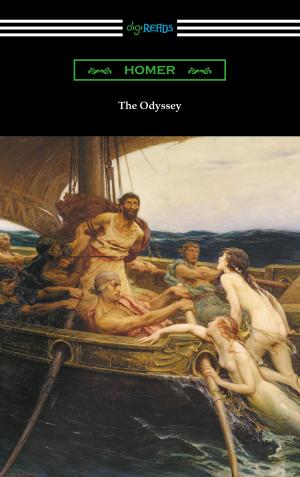| Author: | John Ford | ISBN: | 9781420941838 |
| Publisher: | Neeland Media LLC | Publication: | December 15, 2009 |
| Imprint: | Digireads.com Publishing | Language: | English |
| Author: | John Ford |
| ISBN: | 9781420941838 |
| Publisher: | Neeland Media LLC |
| Publication: | December 15, 2009 |
| Imprint: | Digireads.com Publishing |
| Language: | English |
John Ford (1586-1637) was an English playwright and poet whose interest in aberrant psychology helped him create very unique, and very successful works. After a period of major collaboration with various playwrights, from about 1621 to 1625, Ford began working independently; writing plays for theatrical companies like the King's Men at the Blackfriars. Following the literary reign of such figures as Jonson, Marlowe and Shakespeare, Ford felt the need to shock and intrigue audiences with new and exciting material. This edition features four of Ford's most notable plays: "'Tis Pity She's a Whore," which tells of the incestuous love between Giovanni and his sister Annabella; "The Lover's Melancholy," a quiet tragicomedy exploring the human psyche; "The Broken Heart," the borderline incestuous story of a brother and sister, tied with themes of jealousy, murder and revenge; and "The Chronicle History of Perkin Warbeck," about the conflicts among Warbeck, Henry VII, and James IV of Scotland, and which T. S. Eliot named "unquestionably Ford's highest achievement."
John Ford (1586-1637) was an English playwright and poet whose interest in aberrant psychology helped him create very unique, and very successful works. After a period of major collaboration with various playwrights, from about 1621 to 1625, Ford began working independently; writing plays for theatrical companies like the King's Men at the Blackfriars. Following the literary reign of such figures as Jonson, Marlowe and Shakespeare, Ford felt the need to shock and intrigue audiences with new and exciting material. This edition features four of Ford's most notable plays: "'Tis Pity She's a Whore," which tells of the incestuous love between Giovanni and his sister Annabella; "The Lover's Melancholy," a quiet tragicomedy exploring the human psyche; "The Broken Heart," the borderline incestuous story of a brother and sister, tied with themes of jealousy, murder and revenge; and "The Chronicle History of Perkin Warbeck," about the conflicts among Warbeck, Henry VII, and James IV of Scotland, and which T. S. Eliot named "unquestionably Ford's highest achievement."















